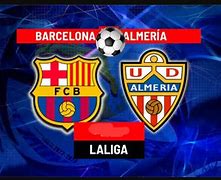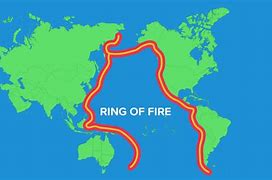Prediksi La Liga 2

Tim yang Perlu Diperhatikan
Musim ini, beberapa tim menjadi perbincangan hangat. Real Madrid adalah juara bertahan dan telah memperkuat skuadnya dengan mendatangkan pemain-pemain papan atas seperti Kylian Mbappe dan pemain muda berbakat asal Brasil Endrick. Jajaran pemain mereka yang tangguh menjadikan mereka pesaing kuat untuk mempertahankan gelar juara. FC Barcelona juga menjadi sorotan, setelah melakukan investasi besar pada pemain seperti Dani Olmo, yang bertujuan untuk merebut kembali dominasi mereka di sepak bola Spanyol. Atletico Madrid , di bawah kepemimpinan Diego Simeone, tetap menjadi kekuatan yang harus diperhitungkan, terutama dengan bergabungnya Julian Alvarez ke dalam opsi penyerangan mereka. Selain itu, Girona adalah tim yang patut diperhatikan, setelah mengamankan posisi empat besar musim lalu dan sekarang ingin memantapkan diri di antara klub-klub elit di La Liga.
s: FC Barcelona and Real Madrid Dominate
Although Atlético Madrid, previously known as ''Atlético Aviación'', were champions in 1950 and 1951 under mastermind Helenio Herrera, the 1950s continued the success FC Barcelona had during the late 1940s.
During this decade, FC Barcelona's first golden era emerged under coach Ferdinand Daučík, winning back-to-back La Liga and Copa Del Rey doubles in 1951–52 and 1952–53. In 1952, FC Barcelona made history yet again by winning five distinctive trophies in one year. This team, composed of László Kubala, Mariano Gonzalvo, César Rodríguez Álvarez, and Joan Segarra, won La Liga, Copa Del Rey, Copa Eva Duarte (predecessor of Spanish Super Cup), Latin Cup and Copa Martini & Rossi. Their success in winning five trophies in one year earned them the name 'L’equip de les cinc Copes'[15] or The Team of the Five Cups.
In the latter parts of the 1950s, coached by Helenio Herrera and featuring Luis Suárez, Barcelona won yet again back-to-back La Liga's, winning them in 1959 and 1960. In 1959, Barcelona also won another double of La Liga / Copa Del Rey, conquering three doubles in the 1950s.
The 1950s also saw the beginning of the Real Madrid dominance. During the 1930s through the 1950s there were strict limits imposed on foreign players. In most cases, clubs could have only three foreign players in their squads, meaning that at least eight local players had to play in every game. During the 1950s, however, these rules were circumvented by Real Madrid who naturalised Alfredo Di Stéfano and Ferenc Puskás.[citation needed] Di Stéfano, Puskás, Raymond Kopa and Francisco Gento formed the nucleus of the Real Madrid team that dominated the second half of the 1950s. Real Madrid won their third La Liga in 1954 — their first since 1933 — and retained their title in 1955. In 1956, Athletic Bilbao won their sixth La Liga title, but Real Madrid won La Liga again in 1957 and 1958.
All in all, Barcelona and Real Madrid won four La Liga titles each in the 1950s, with Atlético Madrid winning two and Athletic Bilbao winning one during this decade.
s: Real Madrid, Barcelona and Valencia's re-emergence
The 21st century continued the success Barcelona had in the 1990s under Johan Cruyff, dominating La Liga. Although Real Madrid had been prominent, Barcelona created a hegemony in Spain not seen since the Real Madrid of the 1960s–70s.[22] Since the start of the new century, Barcelona won ten La Ligas, including two trebles and four doubles. This new century however has also seen new challengers being crowned champions. Between 1999–2000 and 2004, Deportivo La Coruña finished in the top three on five occasions, a better record than either Real Madrid or Barcelona, and in 2000, under Javier Irureta, Deportivo became the ninth team to be crowned champions. Valencia were one of the strongest teams in Europe in the early to mid 2000s; they were crowned La Liga champions in 2002 and 2004 under Rafael Benítez, whilst also being runners-up in the UEFA Champions League in 2000 and 2001 under Hector Cuper and winning the UEFA Cup in 2004 and the Copa del Rey in 1999.
Real Madrid won their first Liga titles of the century in 2001 and 2003. With world-class players like Raúl, Ruud van Nistelrooy and Gonzalo Higuaín, Real Madrid won back-to-back La Liga titles in 2006–07 and 2007–08. Barcelona won their first title of the new century after Real Madrid and Valencia had shared the last four titles under the brilliance of Ronaldinho and Samuel Eto'o in the 2004–05 season. Barcelona retained the title to make it back-to-back wins in the 2005–06 season.
s: Barcelona's Dream Team
Johan Cruyff returned to Barcelona as manager in 1988, and assembled the legendary Dream Team.[19] When Cruyff took control of his Barcelona side, they had won only two La Liga titles in the past 20 years. Cruyff decided to build a team composed of international stars and La Masia graduates in order to restore Barcelona to their former glory days. This team was formed by international stars Romario, Michael Laudrup, Hristo Stoichkov and Ronald Koeman. Cruyff's Dream Team also consisted of La Masia graduates Pep Guardiola, Albert Ferrer and Guillermo Amor, as well as Basque Andoni Zubizarreta.
Johan Cruyff changed the way modern football was played,[20] and incorporated the principles of Total Football into this team. The success of possession-based football was revolutionary,[21] and Cruyff's team won their first European Cup in 1992 and four consecutive La Liga titles between 1991 and 1994. In total, Cruyff won eleven trophies in eight years, making him the most successful manager in Barcelona's history, until the record was broken by his protégé Pep Guardiola two decades later.
Barcelona's run ended with Real Madrid winning La Liga in 1995. Atlético Madrid won their ninth La Liga title in 1996, as well as their only Liga/Copa Del Rey double, before Real Madrid added another league title to their cabinet in 1997. After the success of Cruyff, another Dutchman – Ajax manager, Louis van Gaal – arrived at the Camp Nou, and with the talents of Luís Figo, Luis Enrique, and Rivaldo, Barcelona won the La Liga title in 1998 and 1999, including their fourth double of Liga and Copa Del Rey in 1998. All in all, Barcelona won six La Liga titles in the 1990s.
s–1970s: Real Madrid superiority
Real Madrid dominated La Liga between 1960 and 1980, being crowned champions 14 times.[16] Real Madrid won five La Liga titles in a row from 1961 to 1965 as well as winning three doubles between 1960 and 1980. During the 1960s and 1970s, only Atlético Madrid offered Real Madrid any serious challenge. Atlético Madrid were crowned La Liga champions four times in 1966, 1970, 1973, and 1977. Atlético Madrid also finished second place in 1961, 1963, and 1965. In 1971, Valencia won their fourth La Liga title in 1971 under Alfredo Di Stéfano, and the Johan Cruyff-inspired Barcelona won their ninth La Liga in 1974.
s: Atlético Madrid, Barcelona and Valencia emerge
When the Primera División resumed after the Spanish Civil War, it was Atlético Aviación (nowadays Atlético Madrid), Valencia, and Barcelona that emerged as the strongest clubs. Atlético were only awarded a place during the 1939–40 season as a replacement for Real Oviedo, whose ground had been damaged during the war. The club subsequently won its first Liga title and retained it in 1941. While other clubs lost players to exile, execution, and as casualties of the war, the Atlético team was reinforced by a merger. The young, pre-war squad of Valencia had also remained intact and in the post-war years matured into champions, gaining three Liga titles in 1942, 1944, and 1947. They were also runners-up in 1948 and 1949.
Athletic Bilbao was one of the clubs most affected by the war, since many of its players (sympathizers of the Republican faction) went into exile in Latin America and very few returned. But thanks to a search for young talents, they managed to form the well-known Second historic squad made up of Rafael Iriondo, Venancio Pérez, José Luis Panizo, Agustín Gaínza and the mythical scorer Telmo Zarra (Spanish top scorer in La Liga history, among other records). They won a La Liga and Copa del Generalísimo double in 1943 and won the Cup again in 1944, 1945 and 1950, in addition to an Copa Eva Duarte (official predecessor of the Supercopa). Sevilla also enjoyed a brief golden era, finishing as runners-up in 1940 and 1942 before winning their only title to date in 1946.
Meanwhile, on the other side of Spain, Barcelona began to emerge as a force under the legendary Josep Samitier. A Spanish footballer for both Barcelona and Real Madrid, Samitier cemented his legacy with Barcelona. During his playing career with Barcelona he scored 133 goals, won the inaugural La Liga title and five Copa Del Rey. In 1944, Samitier returned to Barcelona as a coach and guided them in winning their second La Liga title in 1945. Under Samitier and legendary players César Rodríguez, Josep Escolà, Estanislau Basora and Mariano Gonzalvo, Barcelona dominated La Liga in the late 1940s,[14] winning back to back La Liga titles in 1948 and 1949. The 1940s proved to be a successful season for Barcelona, winning three La Liga titles and one Copa Del Rey, but the 1950s proved to be a decade of dominance, not just from Barcelona, but from Real Madrid.
Banyak Pilihan Taruhan
Dengan Betimate , pengguna dapat mengakses berbagai macam opsi taruhan di luar jenis taruhan tradisional. Dari prediksi seperti 1x2 dan Under/Over 2.5 hingga Handicap dan Kedua Tim untuk Mencetak Skor , platform ini memastikan beragam pilihan untuk memenuhi berbagai strategi dan preferensi.
Betimate menyediakan beberapa kiat untuk meningkatkan pengalaman taruhan La Liga Anda . Tetap terinformasi dengan berita terbaru, cedera, dan perubahan susunan pemain sangatlah penting. Menganalisis statistik untuk mengidentifikasi pola dan tren, membandingkan peluang untuk menemukan nilai terbaik, dan mempertimbangkan faktor eksternal seperti kondisi cuaca dan keuntungan bermain di kandang sendiri merupakan bagian dari pendekatan komprehensif Betimate. Selain itu, mengelola uang Anda secara bertanggung jawab, mempelajari pertandingan tim, memantau pergerakan lini, dan bersikap selektif dengan taruhan Anda merupakan strategi penting. Mempercayai analisis dan intuisi Anda sendiri, sambil mempertimbangkan faktor situasional seperti kepadatan jadwal dan cedera, dapat lebih meningkatkan keberhasilan taruhan Anda.
Dengan memanfaatkan fitur dan kiat ini, Betimate memastikan bahwa pengguna memiliki semua alat yang mereka perlukan untuk membuat keputusan taruhan yang tepat dan strategis, menjadikannya pilihan utama bagi penggemar taruhan La Liga.
La Liga Musim 2024/2025: Apa yang Diharapkan
Pemain yang Perlu Diperhatikan
Musim 2024/25 akan menampilkan beberapa talenta paling cemerlang di dunia sepak bola. Kylian Mbappe dari Real Madrid tidak diragukan lagi menjadi bintang utama, yang diharapkan dapat menerangi liga dengan kecepatan dan kehebatannya dalam mencetak gol. Arda Guler , yang juga bermain di Real Madrid, adalah pemain lain yang patut diperhatikan; setelah tahun pertama yang penuh tantangan, ia siap memberikan dampak yang signifikan musim ini.
Dani Olmo di Barcelona, yang baru saja sukses di Euro 2024 bersama Spanyol, siap membawa kreativitas dan bakat ke klub raksasa Catalan tersebut. Bakat muda seperti Endrick di Real Madrid dan Lamine Yamal di Barcelona juga diharapkan menjadi berita utama saat mereka terus berkembang dan berusaha menjadi pemain kunci bagi tim masing-masing.
Qualification for European competitions
The top four teams in La Liga qualify for the subsequent season's UEFA Champions League group stage. The winners of the UEFA Champions League and UEFA Europa League also qualify for the subsequent season's UEFA Champions League group stage.
The fifth place team in La Liga and the winner of the Copa del Rey also qualify for the subsequent season's UEFA Europa League group stage. However, if the winner also finished in the top five places in La Liga, then this place reverts to the team that finished sixth in La Liga. Furthermore, the sixth place (or seventh if sixth already qualifies due to the Copa del Rey) team qualifies for the subsequent season's UEFA Conference League play-off round.[12]
The number of places allocated to Spanish clubs in UEFA competitions is dependent upon the position a country holds in the UEFA country coefficients, which are calculated based upon the performance of teams in UEFA competitions in the previous five years. As of the end of the 2023–24 season, the ranking of Spain (and de facto La Liga) is second.[13]
In April 1928, José María Acha, a director at Arenas de Getxo, first proposed the idea of a national league in Spain. After much debate about the size of the league and who would take part, the Real Federación Española de Fútbol eventually agreed on the ten teams who would form the first Primera División in 1929. Arenas, Barcelona, Real Madrid, Athletic Bilbao, Real Sociedad and Real Unión were all selected as previous winners of the Copa del Rey. Atlético Madrid, Espanyol and Europa qualified as Copa del Rey runners-up and Racing de Santander qualified through a knockout competition. Only three of the founding clubs (Real Madrid, Barcelona, and Athletic Bilbao) have never been relegated from the Primera División.



